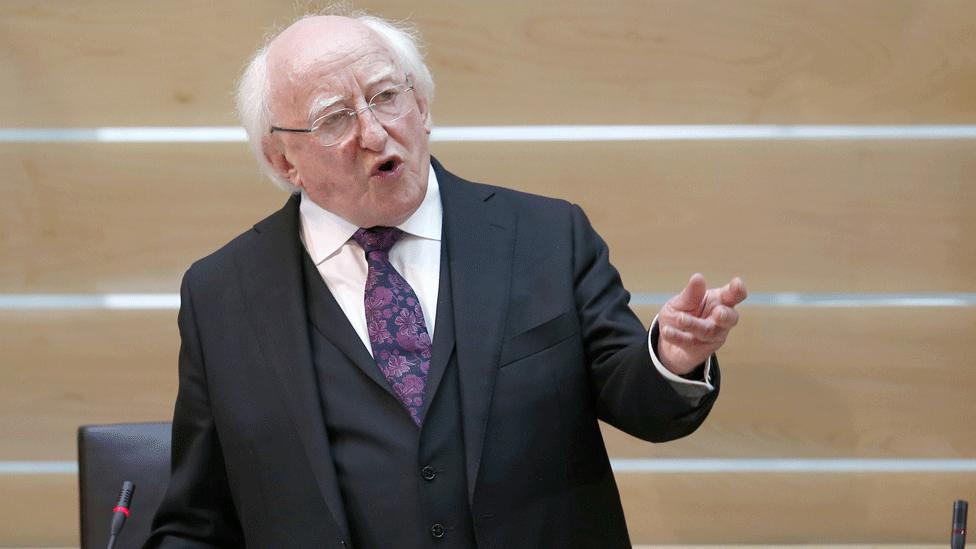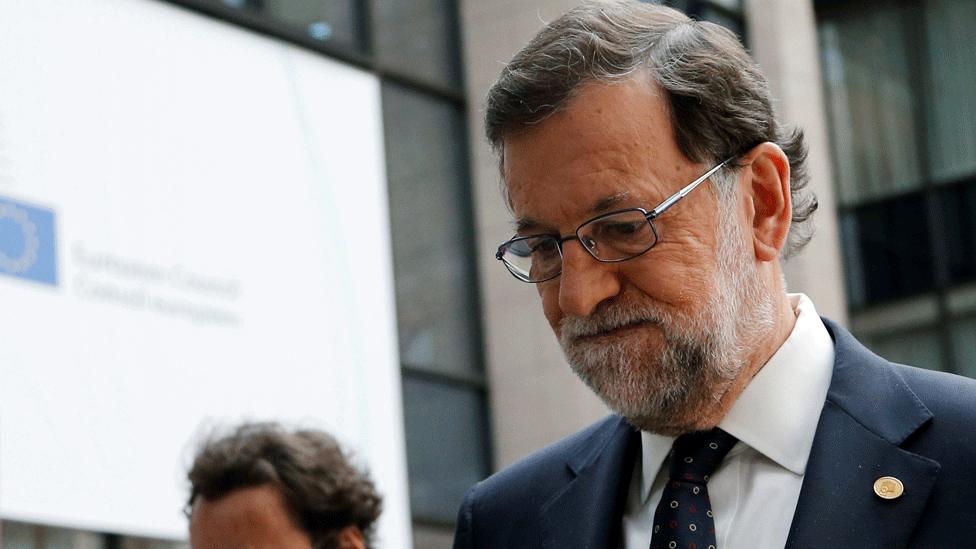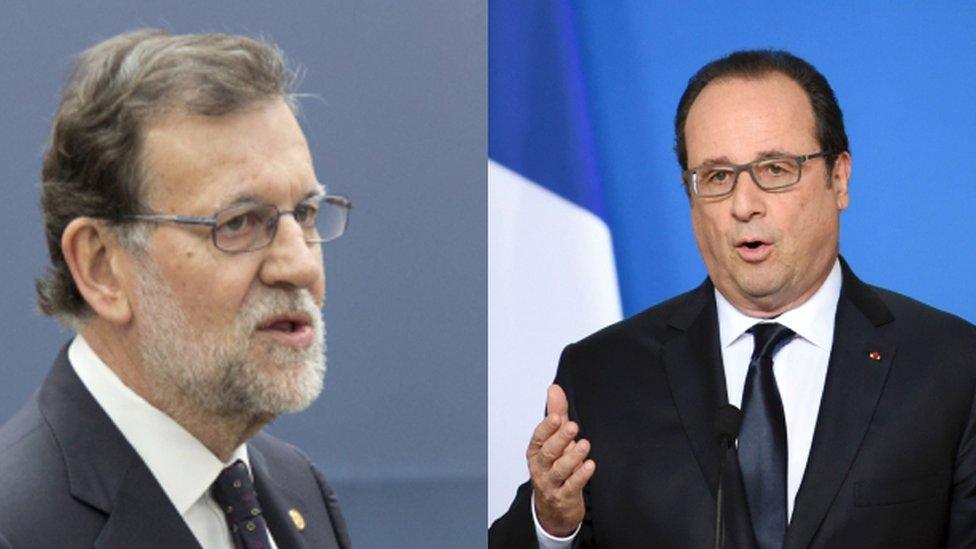Brexit aftermath: Drawing on the words of thinkers
- Published

Irish President Michael Higgins addressed the Scottish Parliament
Ideas and action. In general, it is sensible if one precedes the other. For the avoidance of any doubt, I am suggesting that thought might usefully come first.
Today, in Edinburgh and Brussels, we have had copious examples of both. More precisely, we have had a range of ideas - and, just perhaps, the first stirrings of action.
At Holyrood, the Irish President Michael Higgins cited a range of thinkers - from Socrates to Foucault, not neglecting the Scottish sages Smith and Hume.
He was arguing for civil discourse, as a counter to the "thinly veiled hate and racism" which he saw emerging in the recent referendum.
Also in Edinburgh, the former Prime Minister Gordon Brown drew upon literary sources - Tennyson, Eliot - as he too urged tolerance and argued that political leaders must speedily come forward with options to reassure fretful folk.
For the UK, he warned of a vacuum of leadership in the UK government and his own Labour Party.
He said options should be swiftly examined, personally favouring a Norwegian-style trade deal which would involve continuing freedom of movement for labour. Migration, he said, should also be examined - but rationally and calmly.
For Scotland, he similarly advocated the scrutiny of a series of options - while arguing that there would be economic risks in anything which constrained access to the single market of the UK. He nodded towards a form of quasi-federalism.
FM begins efforts to keep Scotland in the EU
Interesting contributions both. But actions will emerge at the interface between Scotland, the UK and the European Institutions.
In which regard, two important comments today in Brussels where Nicola Sturgeon is in talks with EU leaders, including the Commission President Jean-Claude Juncker.
The President said that Scotland had "won a right to be heard". Now, the right to an audience is a diplomatic prize. It is the first step towards a bargain.
However, that right does not of itself, of course, predetermine an outcome. Indeed, President Juncker stressed that neither he nor the EU Council President Donald Tusk would interfere in the British process of withdrawal from the EU.
That was, he added, "not our duty and not our job". In a different context - but also addressing the issue of Brexit - he has stressed the compendious nature of the UK decision. "If you are out, you are out", he told the BBC.
'If the UK leaves, so does Scotland'
The acting Spanish Prime Minister Mariano Rajoy has gone rather further. He does not appear to believe that Ms Sturgeon is entitled to an audience at all. Or, at least, not to serious consideration for her attempt to keep Scotland in the EU.
Scotland, he said, had no competence to deal with the EU institutions, adding: "The Spanish government rejects any negotiation with anyone other than the United Kingdom."
Mr Rajoy made clear that he would seek to prevent any notion of special or distinctive treatment for Scotland, noting bluntly, in a decidedly non-philosophical way: "If the United Kingdom leaves, so does Scotland."
The Spanish leader, of course, is thinking not of Scotland - but instead offering a decidedly sceptical homage to Catalonia and other semi-autonomous provinces of Spain which might say "me too" if Nicola Sturgeon extracts a special deal.

Acting Spanish Prime Minister Mariano Rajoy: "If the UK leaves, so does Scotland"
So, is Ms Sturgeon's initiative entirely thwarted before it begins? By no means.
Yes, the Spanish statement is a challenge - and it is possible to argue that President Juncker may have to pay heed to a member state which intends to stay in the EU rather than a part of a member state which is on the verge of leaving.
But Nicola Sturgeon's declared objective in these early talks was simply to highlight Scotland's case. To put Scotland's position on the table, to borrow a phrase she has used at home.
She wants to tell the EU institutions that Scotland dissented from the UK outcome - and hopes to retain EU links.
She will continue to explore these prospects in talks with the UK and EU institutions. If, however, they prove futile, she will resort to that other option on the table. A second independence referendum.
- Published29 June 2016
